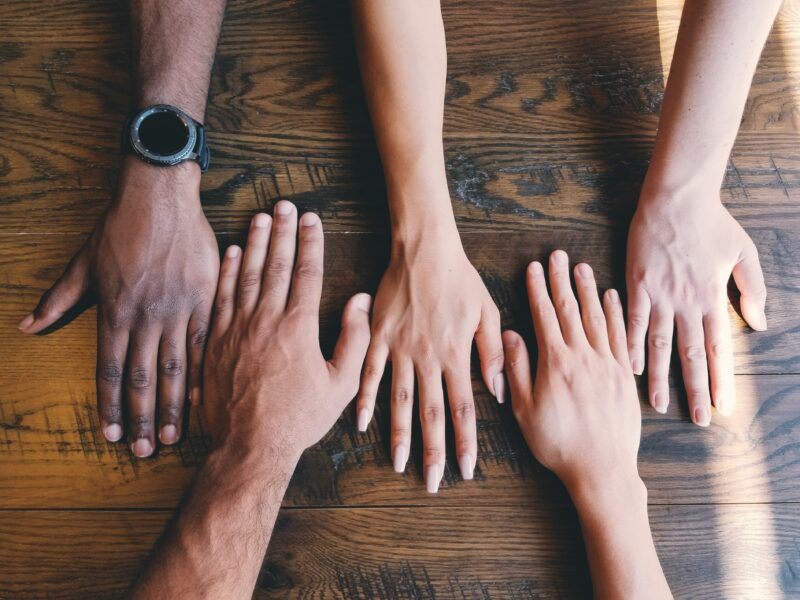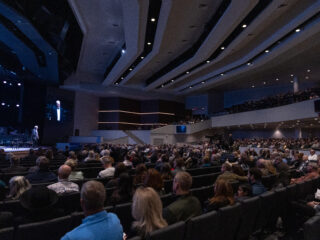I grew up in a little mill village church in Huntsville, Alabama. Every Sunday, we were told what NOT to do. We weren’t supposed to drink alcohol, smoke cigarettes, dance, go to R-rated movies, or hang around sinners who did those kinds of things.
The next Sunday, we’d get back together and praise God that we hadn’t done anything.
For most of my early life, Christianity was a system of sin management. We were given a list of things we were against. Then, we were taught what to do if we did one of those things — by accident, of course. We could ask for forgiveness and repent (promise to never to do this again). We were taught how to avoid these mistakes by not hanging around places where these things happened, like local bars.
Certainly, we were to never hang around people who were doing these things. If we were seen hanging around sinners, we might lose our reputation. Although, I could never figure out how we were supposed to share the gospel with lost people if we couldn’t hang around sinners, but that’s another problem to be discussed another day.
But you get my point. The goal of the process was to NOT SIN. There was little or no emphasis, teaching, or training in growing in righteousness or being transformed into the likeness of Christ. Every Sunday, we went over the things we were against.
I was never told what we were for. That’s a problem. You can live against for only so long. Sooner or later, you’re going to have to know what you’re for.
I’ve been thinking about this as we continue to struggle with the question of race. We see conferences and special report events on television telling us our nation is racist and insisting we not be racist anymore.
Okay. Let’s agree that we are against racism.
Now what?
First, I know racism is real. I grew up in Alabama in the sixties and seventies. Racism was the air we breathed. For me, it was sports that helped me break this cycle. If you could throw or catch a football, shoot a basketball, or hit a baseball, we were going to be friends. Same jersey, same team and the success of the team was built on trust and knowing each other. Racism was overcome on the long bus rides to games and hours of practice.
I don’t know of anyone who is “for” racism. Most people are against racism and see it for the evil it is. So, if everybody is against racism, why aren’t we better in dealing with it?
Because being against racism isn’t enough. You have to be for something to make a difference.
So, what are we for? Simply put, we’re for the diversity of humanity. The diversity of creation makes known the glory of God in a way that no one person or people group can. In all of our human varieties, the vast beauty of God is revealed in a way that surprises us in new ways every day. This is all from and all to the glory of God.
How boring our lives would be with only one flavor of ice cream. God seems to like a lot of different things. He gave us Aretha Franklin and Barbara Streisand. He gave us George Beverly Shea and Hezekiah Walker. He gave us Martin Luther King, Jr. and Billy Graham. The only thing they have in common is the God who created them. God delights in variety. He never makes the same snowflake twice, and He never makes the same person twice. Hidden somewhere in that person is a revelation of their Creator, and that revelation is worth finding.
So, what does that mean? First, it means we receive every person as a gift from God. We believe every person is bringing something of God to us. It’s part of the Imago Dei. Because we believe this, we’ll listen to their stories. We share their pain and understand their dreams. In doing this, we’ll find ourselves wanting the best for this person. We are committed to their well-being and fulfillment of their dreams. We want them to become all God created them to be.
In short, we love them. Now, before you roll your eyes and say, “Great. Let’s just sing another verse of what the world needs now is love, sweet love” – I’m not talking about loving a person the way the world defines. I’m not talking about a swirling emotional connection that makes every joke funny.
I’m talking about love the way Jesus defines it. A love that is willing to bear the scars of the battle, to endure suffering, to call for the best of the beloved, and never give up until the full life of God is ignited within the beloved.
The point isn’t to not be a racist. The point is to love the person who is different from me and fully embrace that difference as a gift from God.
Being against racism doesn’t require me to take the uniqueness of a person seriously. I don’t have to appreciate the gifts they bring to the greater human experience. All I have to do is never mention, even pretend not to notice, the difference at all. In doing so, we totally dismiss their humanity.
That’s not love. It may not be racist, but it’s not love. Love means being committed to helping every human-being celebrate the Spirit’s revelation within each of us and making sure that revelation makes a kingdom difference in the world to the glory of God.
It’s not enough that we be against racism.
Love is for Jesus and His church.
Love is for Christ and His coming kingdom.
Love is for our neighbors and the value they bring to the human experience when the differences among us are acknowledged and celebrated.
It’s not enough to not be racist. We’re called to something much higher than that.









